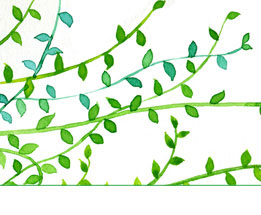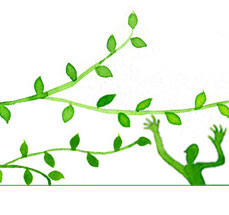마태복음 2020mt11m(7L13-29) Enter through the narrow gate.
페이지 정보

본문
Lesson 11 Matthew 2020
Verses | Matthew 7:13-29
Key Verse | Matthew 7:13,14
Enter through the narrow gate.
"13 “Enter through the narrow gate. For wide is the gate and broad is the road that leads to destruction, and many enter through it. 14 But small is the gate and narrow the road that leads to life, and only a few find it."
As of today, the words of Sermon on the Mount, the Heavenly Charter, which Jesus gave to his followers, are over. There are three parables in today's message. They are a narrow road and a wide road, a good fruit and a bad fruit, a house built on rock and a house built on sand. These parables show how important it is to apply and obey ‘Sermon on the Mount’ like treasure to our lives. Just as even how good the medicine is you should take and digest it to make it useful, you have to practice the verses you have learned so far and make them your own. I pray that we can live a wise life by listening to the message today.
First, try to enter through the narrow gate (14-16). See verses 13 and 14. " 13“Enter through the narrow gate. For wide is the gate and broad is the road that leads to destruction, and many enter through it. 14 But small is the gate and narrow the road that leads to life, and only a few find it." If there is a narrow gate and a wide gate in front of us, we will usually choose to go through the wide gate and take the comfortable wide road. But Jesus says to enter through the narrow gate. How do you get into a narrow gate specifically? It is to live according to the words of the Sermon on the Mount taught by Jesus. There is a desire in people's hearts to fulfill their wishes and to live according to their desires. They want to live freely without anyone's interference. To enter through the narrow gate is to deny this will and desire, and to live according to the words Jesus taught us. It is to wrestle to live as Jesus said. Therefore, a life that goes on a narrow path can only be achieved by constantly repenting for the arrogant and selfish self. It is a life where every day you must repent of your sinful nature such as love of things, love of the world, love of pleasure, etc. A life that goes on a narrow path is a life of faith in one Jesus. It is not a life of relying people, relying on money, and relying on oneself, but of relying on the shepherd Jesus.
This is not an easy task. Therefore, fewer people are looking for it. Only a small number of people enter the narrow gate. So why should we live such a life of self-denial, repentance, a narrow door, and a narrow path? It is because this is the way that leads us to eternal life and salvation. Because when you live a life that goes a wide road, you can never taste the freedom, satisfaction, and joy of your soul. Because you can enjoy the richness of life, enjoy close friendship with God, and live a life to love your neighbors. Relationships between people also become abundant. When I live according to the words of Jesus, the kingdom of God is within me and among us.
Entering the wide gate is living without Jesus' word. A life that goes through the wide door, a wide path, is a life living by the nature of sinful body. It's a life where you live in pursuit of the passions of the body, the passions of the eye, and the pride of your life. It's a life where you live as you want. It is a life far from self-denial, repentance, and obedience. We think it's okay because it looks so comfortable for now and many people go this way. We think like "Well, everyone lives like this." And live without a sense of problem. People who go on a wide road in their religious life accept words that are beneficial to them and reject words that are burdensome. Even if you live a religious life, you can compromise with the world in moderation and do what you think is right rather than what Jesus says. If you enter the wide gate, the road is easy and comfortable, but it becomes vulnerable and corrupt, and eventually it ends up in ruin. Foolish people choose an easy and comfortable path right away without thinking about the future.
But the true disciple of Jesus enters through a narrow door and continues to follow His word. The disciple constantly learns and humbly obeys His words. It is important to know and obey God's will. That's what you enter through the narrow door.
We have to choose whether to enter through a narrow or wide gate. Moses was able to learn advanced studies and enjoy wealth and honor while learning royal law at Pharaoh's palace. But he refused to live as a prince in Egypt. Instead he chose the narrow path where he suffers with the people of God. He considered suffering with people of God and gaining humiliation for the Christ as greater wealth than having a moment of joy in sin and enjoying all the treasures of Egypt as a son of Pharaoh’s princess. This is because he looked at the giving of God's awards (Heb11:24-26). God has written Moses as a great leader in the history of Israel's salvation. He also received the great and eternal honor of the kingdom of God.
Second, good fruit and bad fruit (15-23). See verses 15 and 16. "15 “Watch out for false prophets. They come to you in sheep’s clothing, but inwardly they are ferocious wolves. 16 By their fruit you will recognize them. Do people pick grapes from thorn bushes, or figs from thistles?" "False prophets" are those who tempt you to go on wide doors and wide paths. They only teach and do not live as they say. They are hypocrites. Jesus said to "watch out" for them. If you don't pay attention, it's hard to distinguish. They enter the church in sheep's clothing to seduce the sheep. They look like a great Christian. They only say good things in order to steal people's hearts. They preach the message of blessing and prosperity. They do not teach you the burdensome message of repentance, the words that you must deny yourself, bear your own cross, and follow Jesus. Therefore, only the patterns produce Christians.
How can we tell them apart? If you see verse 20, He said, "Thus, by their fruit you will recognize them." The criterion for determining whether a person is a true prophet or a false prophet is the fruit of behavior. You can decorate yourself and deceive people with your looks or beautiful words. However, the fruit of his inner character and behavior cannot be decorated. As time goes by and if you are with that person, the person's true self is revealed. A false prophet has no awe of God. Because he does not convey the words of God correctly or obey them, the fruits of his life and his teaching are lies, arrogance, disobedience, vanity and greed. On the other hand, through the teachings of the true prophet, the fruit of the Holy Spirit is the fruit of humility, obedience, devotion, and love. False prophets do not love sheep. They only try to fill their own stomach by using sheep. Jesus said that by the end of the world, there will be more of these false prophets (Matthew 24:11). In fact, if you see how active the heresy is, you can know that this is true. We must discern and be careful of these false prophets.
What is the relationship between trees and fruits? See verses 17 and 18. "17 Likewise, every good tree bears good fruit, but a bad tree bears bad fruit. 18 A good tree cannot bear bad fruit, and a bad tree cannot bear good fruit." Jesus compared our lives to trees. At first, we don't know if his tree is a good tree or a bad tree. Some trees are large and leafy, so we think they are good trees. But after a long time, there are some cases where it bears bad fruits, which you cannot eat. On the other hand, there are such cases where a tree is not that big and it's not that fancy, but it turns out to produce very delicious and healthy fruits.
So how can we be a good tree? To be a good tree, we must fundamentally repent, be born again with the Holy Spirit, and become new people. When a person reborn and becomes a new person, that person fears sin and fears God and starts to love one another. Good and beautiful deeds appear in his/her life. Jesus told the secret of fruitfulness in John 15. God has cleansed us with the Word and the Holy Spirit. We dwell in Jesus. We live in that word. We dwell in his love. We receive good nutrients from Jesus and bear the fruits of the Holy Spirit, such as humility and obedience, love and peace, forbearance, mercy, kindness, goodness, gentleness, self-control, and joy (Galatians 5:22,23).
On the other hand, a person who lives according to his/her greed regardless of Jesus' words is a bad tree. Bad trees produce bad fruit. Bad fruits are manifested in pride, greed, lies, adultery, and selfish life. Eventually, every tree that does not bear good fruit is cut down and thrown into the fire (19).
What do false prophets look like? See verses 21-23. “Not everyone who says to me, ‘Lord, Lord,’ will enter the kingdom of heaven, but only the one who does the will of my Father who is in heaven. 22 Many will say to me on that day, ‘Lord, Lord, did we not prophesy in your name and in your name drive out demons and in your name perform many miracles?’ 23 Then I will tell them plainly, ‘I never knew you. Away from me, you evildoers!’.” Even false prophets can teach the Word in the name of the Lord, drive out demons, and do much power in the name of the Lord. But on the last day, the Lord says that He never knew them. They are illegal people. Calling Jesus “the Lord” is a confession that He is my Savior, King and Master of my life. We cannot confess Jesus as the Lord without the Holy Spirit. He also said that anyone who calls on the name of the Lord will be saved (Romans 10:13). However, Jesus tells us to distinguish between true faith and true discipleship. True faith is manifested by faithfulness and loyalty. Faith and faithfulness cannot be thought out separately.
If we experience the gift of tongues, the gift of prophecy, the gift of healing, etc., we believe that we know God more clearly. We get tempted to try something mysterious, especially when our lives are not solved and stuffy or harsh. So, people seek to visit the prayer center in order to experience a miracle. Of course, God shows supernatural powers in our lives. As a result, life problems can be solved and we could have faith in God. However, although mystical abilities or supernatural miracles can help in faith, they are not the essence of faith in themselves. Just because we experienced miracles does not make us a religious person. Like the crowd that followed Jesus to get bread, they can pursue a mysterious power to fulfill their will. However, the essence of faith is to fear God and obey His words and live according to His will. It is to love God and love your neighbor. It is to establish a relationship of personal love and trust with Jesus. Whether we are large or small, we want to grow into a community that faithfully preaches God's Word and obeys God, a community that fears God and loves the neighbors.
Third, the wise and foolish builders (24-29). Jesus tells the following parable about those who hear God’s Words and put them into practice and those who do not. See verses 24-27. We'll read it all together. “ 24Therefore everyone who hears these words of mine and puts them into practice is like a wise man who built his house on the rock. 25 The rain came down, the streams rose, and the winds blew and beat against that house; yet it did not fall, because it had its foundation on the rock. 26 But everyone who hears these words of mine and does not put them into practice is like a foolish man who built his house on sand. 27 The rain came down, the streams rose, and the winds blew and beat against that house, and it fell with a great crash.” In these words, there are two types of builders, one who builds a house on the sand and one who builds a house on the rock. At first glance, it is not easy to understand the builders who build houses on the sand. However, we can see that there are a lot of such people.
So why do people build houses on the sand? Because building a house on the sand is easy and comfortable. We don't have to dig deep, and it takes less money and time. People build houses on the sand to build their house quickly and easily. Jesus said that someone who builds a house on the sand is a fool. They think only about the present and do not prepare for the future. However, a wise person cares about the future and builds a house. It's hard to build it right away and takes a lot of money and time, but in case of flooding in the future, we would need to dig deep and place the plinth on the rock. A house built in this way will not fall even if it rains, streams rose, and wind blows.
He/she who hears Jesus’s Word and obeys it is like a wise man who built the house on a rock. To build a house on a rock, you have to dig deep. Digging the ground is difficult, expensive, and time consuming. Underground construction is very difficult when building. This is because work is slow and requires a lot of money. We build the house of life by listening to God's Word and putting it into practice. Based on the words of Jesus, we aim for the purpose and direction of life. Based on the words of Jesus, we establish a view of life, values, mission, history, marriage, material, and profession. When building a house of life with the Word of God as a material, trouble will not fall. We are not shaken by various demons' tests or the temptations of the world. The house built on the rock doesn't collapse with waves or wind. In the end, it is more important to say, 'Where did you build a house?' than 'Which house did you build?' Depending on whether we built a house on the sand or a rock, the house may collapse or endure.
On Judgment Day, Jesus does not evaluate how successful we are on earth, how much wealth we have, and how honored we are. He listens to Jesus and evaluates whether he did what he said or did not. Those who heard and obeyed the Words on the Sermon on the Mount enter the kingdom of God, but those who did not hear and obeyed will be judged. He who loves God hears and puts into practice on his word, but he who does not have love for God in his heart does not listen to it. If we love ourselves more than God, we will not obey even if we hear the Word. The Pharisees and scribes had a great knowledge of the Bible, but because they did not love God, they did not obey. They studied the Bible to gain eternal life, but there is no enlightenment when there was no obedience. Eventually, they couldn't even get eternal life. We should be wise people who love God and do what they say while living on this earth, thinking about the day when Jesus will come again.
We learned the importance of hearing and putting on practice of the Words of God through today's Word. God's Word saves and makes us progress. When we obey the Word, our spiritual eyes open. Vanity disappears and we can live with life. There is joy and rich relationships when listening to the Word and acting. When we listen to God's Word and study, we have eyes to see life, and we can solve many problems and concerns. As shepherds, we can talk a lot and do less. But I pray that we will be able to bear fruit and live a life as practical shepherd who speaks less and puts the Word in practice more.
Verses | Matthew 7:13-29
Key Verse | Matthew 7:13,14
Enter through the narrow gate.
"13 “Enter through the narrow gate. For wide is the gate and broad is the road that leads to destruction, and many enter through it. 14 But small is the gate and narrow the road that leads to life, and only a few find it."
As of today, the words of Sermon on the Mount, the Heavenly Charter, which Jesus gave to his followers, are over. There are three parables in today's message. They are a narrow road and a wide road, a good fruit and a bad fruit, a house built on rock and a house built on sand. These parables show how important it is to apply and obey ‘Sermon on the Mount’ like treasure to our lives. Just as even how good the medicine is you should take and digest it to make it useful, you have to practice the verses you have learned so far and make them your own. I pray that we can live a wise life by listening to the message today.
First, try to enter through the narrow gate (14-16). See verses 13 and 14. " 13“Enter through the narrow gate. For wide is the gate and broad is the road that leads to destruction, and many enter through it. 14 But small is the gate and narrow the road that leads to life, and only a few find it." If there is a narrow gate and a wide gate in front of us, we will usually choose to go through the wide gate and take the comfortable wide road. But Jesus says to enter through the narrow gate. How do you get into a narrow gate specifically? It is to live according to the words of the Sermon on the Mount taught by Jesus. There is a desire in people's hearts to fulfill their wishes and to live according to their desires. They want to live freely without anyone's interference. To enter through the narrow gate is to deny this will and desire, and to live according to the words Jesus taught us. It is to wrestle to live as Jesus said. Therefore, a life that goes on a narrow path can only be achieved by constantly repenting for the arrogant and selfish self. It is a life where every day you must repent of your sinful nature such as love of things, love of the world, love of pleasure, etc. A life that goes on a narrow path is a life of faith in one Jesus. It is not a life of relying people, relying on money, and relying on oneself, but of relying on the shepherd Jesus.
This is not an easy task. Therefore, fewer people are looking for it. Only a small number of people enter the narrow gate. So why should we live such a life of self-denial, repentance, a narrow door, and a narrow path? It is because this is the way that leads us to eternal life and salvation. Because when you live a life that goes a wide road, you can never taste the freedom, satisfaction, and joy of your soul. Because you can enjoy the richness of life, enjoy close friendship with God, and live a life to love your neighbors. Relationships between people also become abundant. When I live according to the words of Jesus, the kingdom of God is within me and among us.
Entering the wide gate is living without Jesus' word. A life that goes through the wide door, a wide path, is a life living by the nature of sinful body. It's a life where you live in pursuit of the passions of the body, the passions of the eye, and the pride of your life. It's a life where you live as you want. It is a life far from self-denial, repentance, and obedience. We think it's okay because it looks so comfortable for now and many people go this way. We think like "Well, everyone lives like this." And live without a sense of problem. People who go on a wide road in their religious life accept words that are beneficial to them and reject words that are burdensome. Even if you live a religious life, you can compromise with the world in moderation and do what you think is right rather than what Jesus says. If you enter the wide gate, the road is easy and comfortable, but it becomes vulnerable and corrupt, and eventually it ends up in ruin. Foolish people choose an easy and comfortable path right away without thinking about the future.
But the true disciple of Jesus enters through a narrow door and continues to follow His word. The disciple constantly learns and humbly obeys His words. It is important to know and obey God's will. That's what you enter through the narrow door.
We have to choose whether to enter through a narrow or wide gate. Moses was able to learn advanced studies and enjoy wealth and honor while learning royal law at Pharaoh's palace. But he refused to live as a prince in Egypt. Instead he chose the narrow path where he suffers with the people of God. He considered suffering with people of God and gaining humiliation for the Christ as greater wealth than having a moment of joy in sin and enjoying all the treasures of Egypt as a son of Pharaoh’s princess. This is because he looked at the giving of God's awards (Heb11:24-26). God has written Moses as a great leader in the history of Israel's salvation. He also received the great and eternal honor of the kingdom of God.
Second, good fruit and bad fruit (15-23). See verses 15 and 16. "15 “Watch out for false prophets. They come to you in sheep’s clothing, but inwardly they are ferocious wolves. 16 By their fruit you will recognize them. Do people pick grapes from thorn bushes, or figs from thistles?" "False prophets" are those who tempt you to go on wide doors and wide paths. They only teach and do not live as they say. They are hypocrites. Jesus said to "watch out" for them. If you don't pay attention, it's hard to distinguish. They enter the church in sheep's clothing to seduce the sheep. They look like a great Christian. They only say good things in order to steal people's hearts. They preach the message of blessing and prosperity. They do not teach you the burdensome message of repentance, the words that you must deny yourself, bear your own cross, and follow Jesus. Therefore, only the patterns produce Christians.
How can we tell them apart? If you see verse 20, He said, "Thus, by their fruit you will recognize them." The criterion for determining whether a person is a true prophet or a false prophet is the fruit of behavior. You can decorate yourself and deceive people with your looks or beautiful words. However, the fruit of his inner character and behavior cannot be decorated. As time goes by and if you are with that person, the person's true self is revealed. A false prophet has no awe of God. Because he does not convey the words of God correctly or obey them, the fruits of his life and his teaching are lies, arrogance, disobedience, vanity and greed. On the other hand, through the teachings of the true prophet, the fruit of the Holy Spirit is the fruit of humility, obedience, devotion, and love. False prophets do not love sheep. They only try to fill their own stomach by using sheep. Jesus said that by the end of the world, there will be more of these false prophets (Matthew 24:11). In fact, if you see how active the heresy is, you can know that this is true. We must discern and be careful of these false prophets.
What is the relationship between trees and fruits? See verses 17 and 18. "17 Likewise, every good tree bears good fruit, but a bad tree bears bad fruit. 18 A good tree cannot bear bad fruit, and a bad tree cannot bear good fruit." Jesus compared our lives to trees. At first, we don't know if his tree is a good tree or a bad tree. Some trees are large and leafy, so we think they are good trees. But after a long time, there are some cases where it bears bad fruits, which you cannot eat. On the other hand, there are such cases where a tree is not that big and it's not that fancy, but it turns out to produce very delicious and healthy fruits.
So how can we be a good tree? To be a good tree, we must fundamentally repent, be born again with the Holy Spirit, and become new people. When a person reborn and becomes a new person, that person fears sin and fears God and starts to love one another. Good and beautiful deeds appear in his/her life. Jesus told the secret of fruitfulness in John 15. God has cleansed us with the Word and the Holy Spirit. We dwell in Jesus. We live in that word. We dwell in his love. We receive good nutrients from Jesus and bear the fruits of the Holy Spirit, such as humility and obedience, love and peace, forbearance, mercy, kindness, goodness, gentleness, self-control, and joy (Galatians 5:22,23).
On the other hand, a person who lives according to his/her greed regardless of Jesus' words is a bad tree. Bad trees produce bad fruit. Bad fruits are manifested in pride, greed, lies, adultery, and selfish life. Eventually, every tree that does not bear good fruit is cut down and thrown into the fire (19).
What do false prophets look like? See verses 21-23. “Not everyone who says to me, ‘Lord, Lord,’ will enter the kingdom of heaven, but only the one who does the will of my Father who is in heaven. 22 Many will say to me on that day, ‘Lord, Lord, did we not prophesy in your name and in your name drive out demons and in your name perform many miracles?’ 23 Then I will tell them plainly, ‘I never knew you. Away from me, you evildoers!’.” Even false prophets can teach the Word in the name of the Lord, drive out demons, and do much power in the name of the Lord. But on the last day, the Lord says that He never knew them. They are illegal people. Calling Jesus “the Lord” is a confession that He is my Savior, King and Master of my life. We cannot confess Jesus as the Lord without the Holy Spirit. He also said that anyone who calls on the name of the Lord will be saved (Romans 10:13). However, Jesus tells us to distinguish between true faith and true discipleship. True faith is manifested by faithfulness and loyalty. Faith and faithfulness cannot be thought out separately.
If we experience the gift of tongues, the gift of prophecy, the gift of healing, etc., we believe that we know God more clearly. We get tempted to try something mysterious, especially when our lives are not solved and stuffy or harsh. So, people seek to visit the prayer center in order to experience a miracle. Of course, God shows supernatural powers in our lives. As a result, life problems can be solved and we could have faith in God. However, although mystical abilities or supernatural miracles can help in faith, they are not the essence of faith in themselves. Just because we experienced miracles does not make us a religious person. Like the crowd that followed Jesus to get bread, they can pursue a mysterious power to fulfill their will. However, the essence of faith is to fear God and obey His words and live according to His will. It is to love God and love your neighbor. It is to establish a relationship of personal love and trust with Jesus. Whether we are large or small, we want to grow into a community that faithfully preaches God's Word and obeys God, a community that fears God and loves the neighbors.
Third, the wise and foolish builders (24-29). Jesus tells the following parable about those who hear God’s Words and put them into practice and those who do not. See verses 24-27. We'll read it all together. “ 24Therefore everyone who hears these words of mine and puts them into practice is like a wise man who built his house on the rock. 25 The rain came down, the streams rose, and the winds blew and beat against that house; yet it did not fall, because it had its foundation on the rock. 26 But everyone who hears these words of mine and does not put them into practice is like a foolish man who built his house on sand. 27 The rain came down, the streams rose, and the winds blew and beat against that house, and it fell with a great crash.” In these words, there are two types of builders, one who builds a house on the sand and one who builds a house on the rock. At first glance, it is not easy to understand the builders who build houses on the sand. However, we can see that there are a lot of such people.
So why do people build houses on the sand? Because building a house on the sand is easy and comfortable. We don't have to dig deep, and it takes less money and time. People build houses on the sand to build their house quickly and easily. Jesus said that someone who builds a house on the sand is a fool. They think only about the present and do not prepare for the future. However, a wise person cares about the future and builds a house. It's hard to build it right away and takes a lot of money and time, but in case of flooding in the future, we would need to dig deep and place the plinth on the rock. A house built in this way will not fall even if it rains, streams rose, and wind blows.
He/she who hears Jesus’s Word and obeys it is like a wise man who built the house on a rock. To build a house on a rock, you have to dig deep. Digging the ground is difficult, expensive, and time consuming. Underground construction is very difficult when building. This is because work is slow and requires a lot of money. We build the house of life by listening to God's Word and putting it into practice. Based on the words of Jesus, we aim for the purpose and direction of life. Based on the words of Jesus, we establish a view of life, values, mission, history, marriage, material, and profession. When building a house of life with the Word of God as a material, trouble will not fall. We are not shaken by various demons' tests or the temptations of the world. The house built on the rock doesn't collapse with waves or wind. In the end, it is more important to say, 'Where did you build a house?' than 'Which house did you build?' Depending on whether we built a house on the sand or a rock, the house may collapse or endure.
On Judgment Day, Jesus does not evaluate how successful we are on earth, how much wealth we have, and how honored we are. He listens to Jesus and evaluates whether he did what he said or did not. Those who heard and obeyed the Words on the Sermon on the Mount enter the kingdom of God, but those who did not hear and obeyed will be judged. He who loves God hears and puts into practice on his word, but he who does not have love for God in his heart does not listen to it. If we love ourselves more than God, we will not obey even if we hear the Word. The Pharisees and scribes had a great knowledge of the Bible, but because they did not love God, they did not obey. They studied the Bible to gain eternal life, but there is no enlightenment when there was no obedience. Eventually, they couldn't even get eternal life. We should be wise people who love God and do what they say while living on this earth, thinking about the day when Jesus will come again.
We learned the importance of hearing and putting on practice of the Words of God through today's Word. God's Word saves and makes us progress. When we obey the Word, our spiritual eyes open. Vanity disappears and we can live with life. There is joy and rich relationships when listening to the Word and acting. When we listen to God's Word and study, we have eyes to see life, and we can solve many problems and concerns. As shepherds, we can talk a lot and do less. But I pray that we will be able to bear fruit and live a life as practical shepherd who speaks less and puts the Word in practice more.
첨부파일
-
2020mt11m-eng.docx (20.2K)
0회 다운로드 | DATE : 2020-06-14 22:14:21
댓글목록
등록된 댓글이 없습니다.















